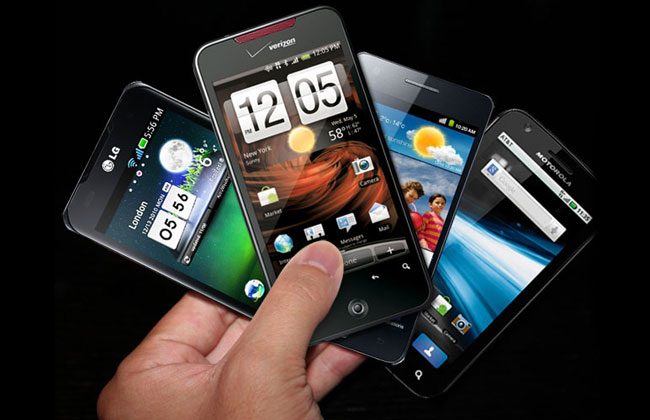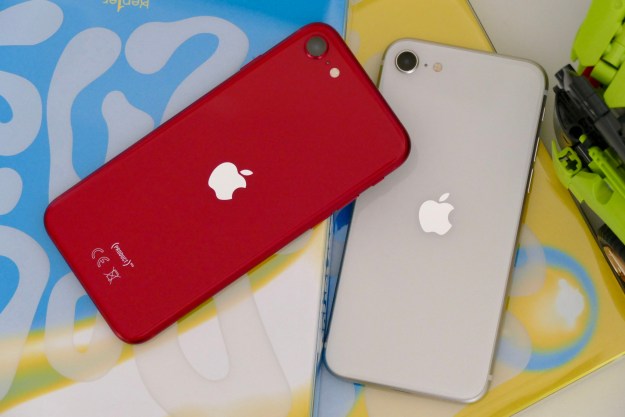
Android phones, Windows phones, iPhones and BlackBerrys, while seemingly very similar, actually appear to appeal to very different users. After using all four, I prefer the Windows Phone, while many of the folks I travel with use iPhones or Android phones, and a lot of the financial analysts I run into carry a BlackBerry. In looking at the strengths and weaknesses of each, I think I can define what attracts folks to each phone. These aren’t absolutes by any means, but picking a phone that matches your personality can be a quick way for new smartphone users to get up to speed on the fundamental differences between each operating system. We’ll go alphabetically.
Android users
Android phones tend to be the most advanced technically, but often the most raw. Most applications are free, but privacy and security aren’t really Google’s thing, since the phones are partially funded by an advertising model. Android phone users are likely the closest to technology geeks; the phones are best used by guys who like to tinker with things and folks who like a bargain. Android users want the most choice in carriers and phone designs, and don’t mind a little aggravation in exchange for having something that is different. Their personal motto is likely “viva la difference.”
 BlackBerry users
BlackBerry users
The BlackBerry is arguably the best phone (for those who forgot what a phone is supposed to do, it is supposed to easily take and make phone calls) in its class. It does a few things really well, like PDA features, but lacks much depth in applications and is most often purchased by companies. BlackBerry users are buttoned down and work focused. They like feeling secure, and believe that everything has a place, and that it should be in that place. Life isn’t about play, it is about making money, and they’d likely prefer wearing a suit to any other form of dress. It doesn’t mean they don’t have a wild side though, and these folks are most likely to have a second personal phone that isn’t a BlackBerry for nonprofessional use. Their professional motto is likely “time is money.”
iPhone users
The iPhone is an elegant package with more applications than any other device, tied at the hip to a company that does more to control all aspects of the experience than any other firm. The iPhone user is more status oriented than the others and likely very cliquish. They want to belong, and aren’t huge fans of having to muck with technology. They expect things to work, and for vendors to take care of them. They like to play, but they like to show off more. They want to belong, be part of something, and certainly not stand out and be different. They know quality when the see it, and are willing to pay for it. For the Apple fan, their personal motto is likely, “paaaaaarty!”
 Windows Phone users (WP7)
Windows Phone users (WP7)
The Windows Phone is known for its speed in getting to key applications, its integration with all things Windows, and matching the BlackBerry in terms of being a great phone. The Windows Phone user is into speed and efficiency. They don’t want to waste time learning convoluted steps to getting things done, and don’t care about looking like everyone else. They don’t strive to be different, but are different nonetheless, and this is likely reflected in the car they drive and the clothes they wear. They buy quality, like a clean design, and products where they have some important choices in terms of phone design and carrier but not too many to be tedious. More fun than a BlackBerry user, more independent than an iPhone user, and less tolerant of change than an Android user, their personal motto is likely “moderation in all things.”
Picking products that match your personality
The first step in being happy with any product is likely being honest with yourself about what you like most in a product. For instance, if you like doing things with a lot of people and being in control, a two-seat sports car wouldn’t be a wise purchase and an SUV might be (particularly if you like camping, or looking down on people in two-seat sports cars). In short, your path to being a happier consumer starts with better knowledge of yourself.
Editors' Recommendations
- Nomad’s new iPhone case and Apple Watch band may be its coolest yet
- Best iPhone deals: Save on iPhone 15, iPhone 15 Pro Max and more
- The most common Skype problems and how to fix them
- iPhone 16: news, rumored price, release date, and more
- Why you should buy the iPhone 15 Pro instead of the iPhone 15 Pro Max




